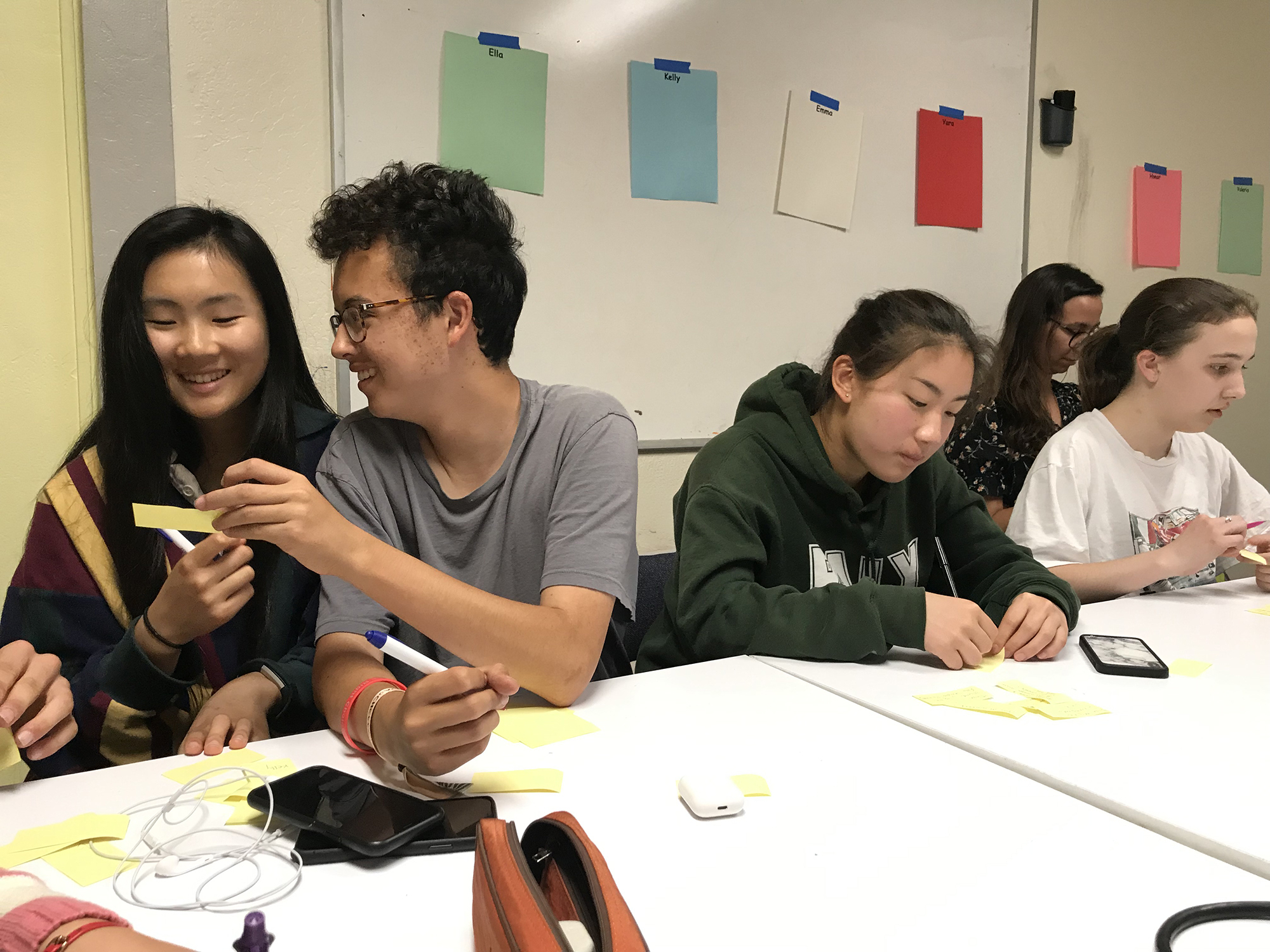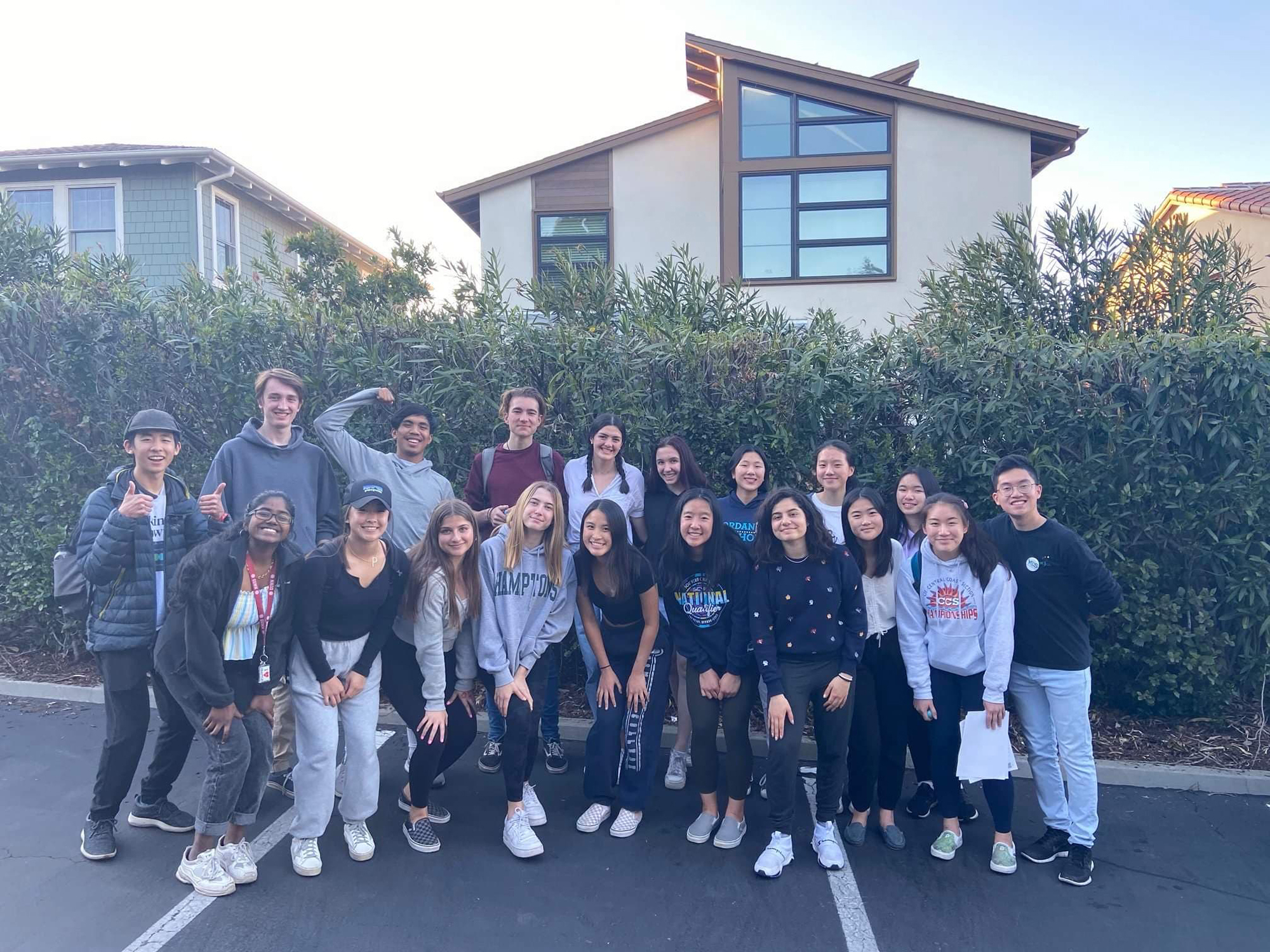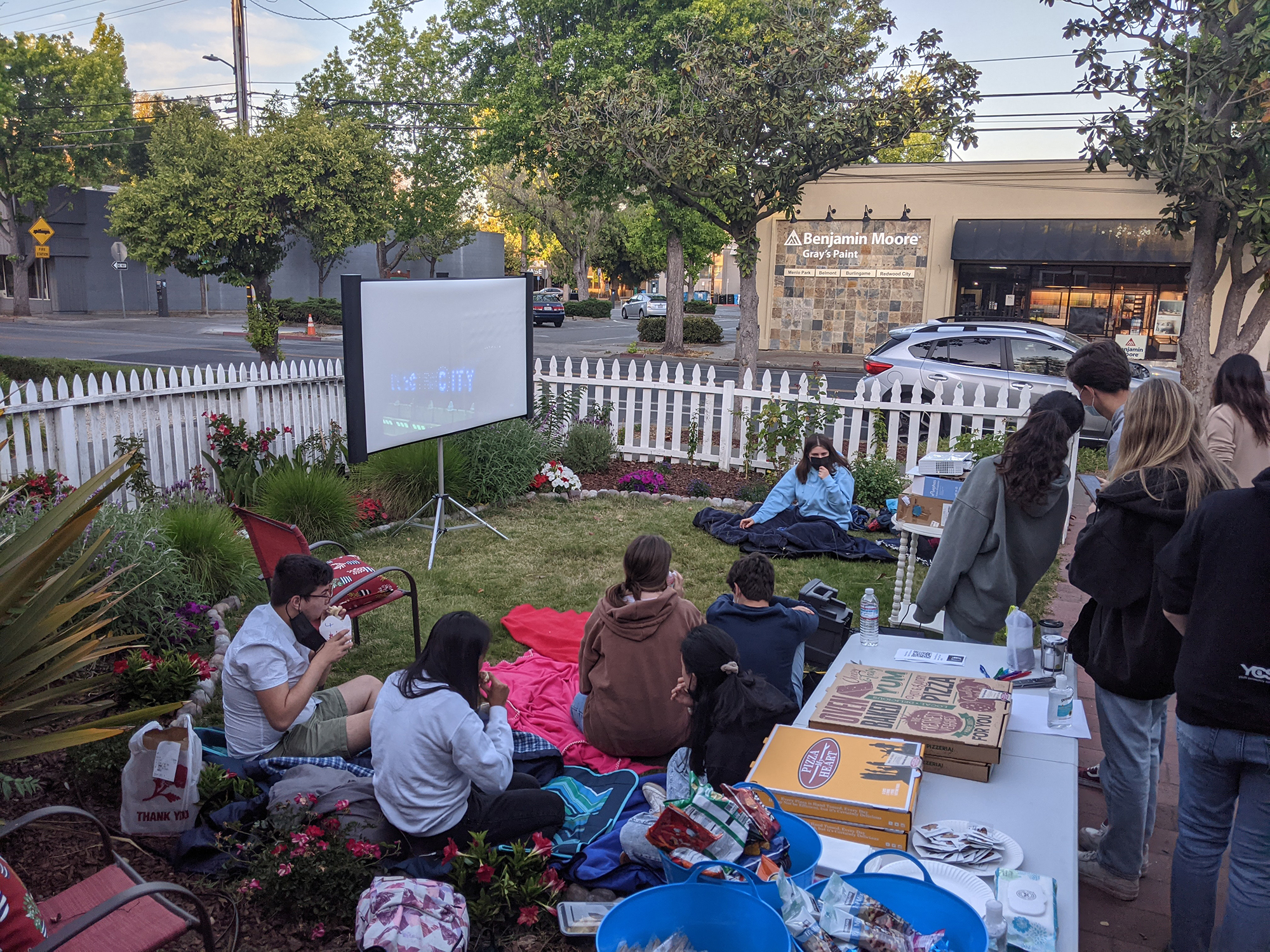When Emily Yao first joined Youth Connect during her sophomore year at Palo Alto High School, she thought it would be a good way to complete the community service hours required to graduate, but what she didn't realize at first was the personal impact that the organization would ultimately have on her.
Now a senior, Yao is still involved in the program, which focuses on youth mental health, and said the experience has given her the tools to support her peers, provided clarity on her own mental health and made her realize she wants to pursue mental health advocacy as part of her eventual career path.
"It just felt like the students' voices were really valued in a way that I had never felt before," Yao said.
Youth Connect is run through the Palo Alto-based nonprofit Youth Community Service and focuses on youth leadership and community building as a way to address the mental health issues that many young people face.
"What we're trying to tap into is the power of just feeling a sense of belonging, having an understanding that your existence makes sense and that you belong somewhere," said Jennifer Lee-Thuresson, Youth Connect's program manager.
Students from various local high schools who come together through Youth Connect to work as peer leaders on a diverse array of projects, all in some way tied to mental health. The students have done everything from set up expert panels on suicide prevention to create social media posts about resources for survivors of sexual violence.
The program currently has two cohorts of students, one based in Palo Alto and the other in the Sequoia Union High School District.
The idea for Youth Connect originally stemmed from a 2016 report by the U.S. Centers for Disease Control and Prevention about the youth suicide clusters in Palo Alto, which identified risk factors as well as described the positive impact that preventative measures can have on reducing suicides, said Ashley Yee-Mazawa, Youth Connect's program director.
Youth Community Service realized that its existing focus on service learning could be used to help address the mental health needs that the report laid out, Yee-Mazawa said.
With funding from the city of Palo Alto and Santa Clara County, Youth Community Service launched Youth Connect, at the time called the Youth Connectedness Initiative, in the fall of 2017.
"The program was really born from this idea of the importance of connectedness as a protective factor for teens," said Megan Davis, Youth Connect's peer leadership program coordinator. "The program is grounded in this idea about the importance of awareness, conversation around and distigmatizing mental health and suicide prevention."
Centering the students' perspectives
From its inception, a hallmark of Youth Connect has been its focus on student leadership and giving the teens the ability to decide the program's direction.
"Young people are so often in the position where they're being told what to do or how to do something," Yee-Mazama said. "They have a lot of ideas and capability. We just need to give them the space to experience that and to practice those skills."
When Rein Vaska joined Youth Connect, he said it was the "first really student-run organization" that he'd seen, allowing students the freedom to pick the projects they want to focus on.
Growing up in Palo Alto, Vaska said mental health issues like anxiety, depression and eating disorders were "overwhelmingly common" among his peers. As part of Youth Connect, Vaska was able to tackle some of these issues directly, creating videos about testing anxiety and spreading awareness about body positivity and body dysmorphia.
"Students really know the student population better than anybody else," said Vaska, who was part of Youth Connect until he graduated from Palo Alto High this spring. "They're going to be the best at coming up with accessible ways that people would be interested in to learn more about mental health and get help."
The projects Youth Connect works on are often tied to issues that are currently impacting the community. At the beginning of 2021, a series of Palo Alto students came forward on social media to tell their stories of sexual assault and rape.
Youth Connect responded by gathering information and resources on about sexual violence and sharing them online. Yao's work on that project made her feel informed and comfortable enough to reach out personally to some of the students who had come forward, offering her support.
"The amount of gratitude that I heard back from these people was really what made my work on Youth Connect so valuable," Yao said. "These people felt so grateful to have people who were listening to them and believing them and trusting them, that I just felt like my work was really impactful."
Youth Connect also takes an intergenerational approach, with students reaching out not only to their peers but also to adults in the community. The group is holding workshops this fall for adults to learn what actions they can take to contribute positively to the well-being of young people.
"The youth identified needs and the youth identified actions that they are specifically asking adults to do to be supportive," Lee-Thuresson said, noting that the focus is on what students find effective, not what adults may want.
The hardship of the pandemic
The pandemic has taken a particular toll on young people, who were isolated from their friends and left to make connections over screens, said Davis, who added that there was a spike in adolescents going to the emergency room for mental health concerns.
Although Youth Connect has always worked on mental health issues, Yee-Mazama said the pandemic caused the group to much more explicitly tie their work to the topic. Before, many projects were more broadly on connectedness and creating community; now students are focusing directly on issues like loneliness and isolation.
Renny Argast, who joined Youth Connect this fall, said she has seen firsthand the impact the pandemic has had on her peers and hopes her work on Youth Connect can help make a difference.
"Especially since it's during COVID, people are having a particularly hard time," Argas said. "Being able to have access to mental health resources is really important."
For Yao, during the pandemic, the combination of being cut off from her friends and grappling with the stress of junior year led her to feel anxious and disconnected. She was afraid to attend her virtual classes because she was behind in her work.
Although Yao was raising awareness through Youth Connect of mental health supports at schools and encouraging students to start dialogues with their friends and family, she said she was "not listening to my own words." Then, something clicked.
"I realized, I am now the audience that I was once targeting with my work at Youth Connect," Yao said. "The person I am now is the person who I'm supposed to be speaking to."
She decided to reach out to therapists at her school's wellness center and said the support she received helped her work through the anxiety she was experiencing and perform better in school. Now, she said she feels it's her mission to let other students know that there is support for them too.
"Reaching out might seem really scary, but once you get there, it's so worth it. It's so valuable," Yao said.
Help is available
Any person who is feeling depressed, troubled or suicidal can call 800-784-2433 to speak with a crisis counselor. People in Santa Clara County can call 855-278-4204. Spanish speakers can call 888-628-9454.
People can reach trained counselors at Crisis Text Line by texting 741741.
Read more: How to help those in crisis





Comments
Registered user
Monta Loma
on Nov 1, 2021 at 3:35 pm
Registered user
on Nov 1, 2021 at 3:35 pm
Bravo for this important work! I'm so glad Yao was able to have the "Aha!" moment in realizing she needed to take her own advice. Great insight, action and role modeling. Thanks to all who are engaged in this work.